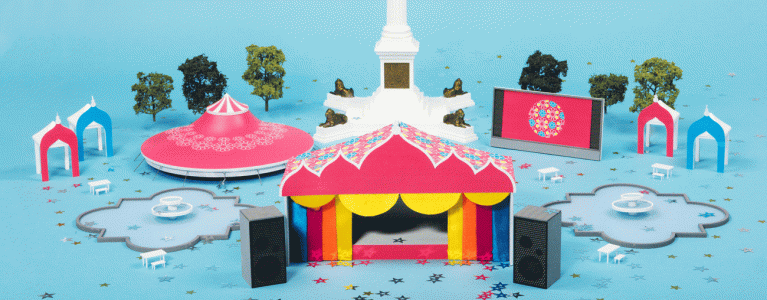
Community Engagement team member, Tazmin talks about Ramadan and Eid al-Fitr and the experience of celebrating the religious festival two years in a row under the restrictions of COVID-19.
Eid al-Fitr (festival of breaking the fast) is the first of the two Eid’s in the Islamic calendar. It is a celebration after the month of Ramadan, whereby Muslims fast from dawn till sunset. Both Ramadan and Eid serve as a reminder for Muslims to be more spiritual, spend time with loved ones, remember the less fortunate, and support charities.
During both festivals, Muslims usually donate money to those who are poor or in need, as Zakat (charitable donations) is one of the five pillars of Islam. Last year it was estimated by Islamic Relief that in the UK Muslims donated more than £150 million to charity during Ramadan.
Both Eid and Ramadan consist of family and friends gathering, communal worship at the mosque, and having feasts in groups. For Muslims in the UK this has been the second year with COVID-19 restriction, which has meant that we have not been able to break fast or celebrate Eid with friends and family in the usual way.
However, fasting with COVID-19 restrictions has had its benefits! By not having to commute to work every day I was able to save a lot of energy, working from home allowed me to have flexible working hours, and the extra time at home allowed me to connect in a more spiritual level with my faith- by having more time to pray and read the Quran (holy Islamic book).
Despite the limitations with COVID-19 my routine for Eid remained the same, whereby I began my day by dressing up in a new salwar kameez (traditional dress) which was followed by a lovely feast with my family. We indulged in biryani, tandoori chicken, and a selection of Bengali sweet treats such as gulab jamun (doughnut soaked in syrup) and rasmalai (milky sweet dumplings).
While Eid and Ramadan have been rather unusual, we must not forget that there are other Muslims around the world who are less fortunate and unable to celebrate at all for various reasons. Therefore, this time of the year is a real opportunity for us all to remember those who are less fortunate and try to make a positive impact on their lives.
Did you know…?
It's an Islamic tradition to break our fast with a date- dates are a great way to restore energy after fasting as they are rich in sugar, fibre and potassium. These nutritious fruits help stabilize blood sugar levels and satisfy the sensation of hunger, which in turn helps to avoid overeating.
After nine to ten weeks we resume celebrations with Eid Ul-Adha (festival of sacrifice). Muslims traditionally greet each other on the day by wishing one another “Eid Mubarak” (Blessed Eid).